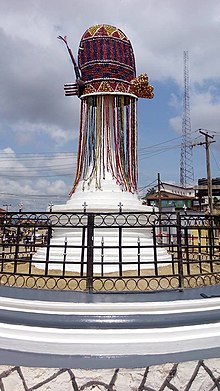By Professor Omodion Imafidon
A Bini schorlar counters historic lies
Ile-Ife Kingdom is historically regarded as the oldest kingdom in Nigeria and the second oldest in West Africa, following the Sahelian Kingdom of Ghana, which was documented from the 11th century. Some historical records place Ile-Ife’s existence as far back as the 4th century, while others assert that Ile-Ife has been present since the dawn of mankind, with certain proofs remaining elusive and unrecorded for public knowledge.
The renowned Greek historian Herodotus, often called the father of history, who lived from 484 BC until 424 BC, referenced Ile-Ife in his works. He stated, “According to history, there were five ancient cities in Africa between 3000 and 1000 BC, one of which was Ife.”
Further corroborating this, the BBC notes that the Kingdom of Ife developed within the rainforest around the 600s. Ife’s profound influence on art and religion shaped the cultural development of Benin, a kingdom which emerged in the 900s and reached its zenith between the 1400s and 1600s. (BBC source: https://www.bbc.co.uk/bit…/topics/zpvckqt/articles/z883gk7)
From 700 to 1600 AD, West Africa saw the rise of three major empires: Ghana, Mali, and Songhai, all of which accumulated great wealth from gold trade. One of the last prominent kingdoms, Asante, was founded around 1700 and became famous for its gold craftsmanship.
The Bini Kingdom, which was later destroyed by the British in 1897, was established in 1170 CE. Despite its eventual fall, Benin shared close ties with the older Kingdom of Ile-Ife. According to historical accounts, the establishment of the Obaship in Benin was achieved with the guidance of a prince from Ile-Ife, which continues to be an integral part of Bini history (Olumense, 1971).
Ile-Ife is a foundational source of numerous ethnic groups in West Africa, including those in Nigeria, Benin Republic, Ghana, and The Gambia. Many of these ancient tribes trace their lineage back to Ile-Ife, underscoring its historical significance as the cradle of civilizations in the region.
Herodotus also recorded that the European attack on the Bini Kingdom was not due to its isolation, as neighboring kingdoms such as Ile-Ife clearly existed. In fact, it was the people of Benin who invited a prince from Ile-Ife to rule their land, signifying the interconnectedness of the two kingdoms.
Today, Ile-Ife remains where it has always been, in what is now known as Western Nigeria. However, its influence stretches far beyond, as numerous ethnic groups across West Africa trace their origins back to this ancient city. Unlike many other kingdoms that were founded by rulers, Ile-Ife was established by its early inhabitants long before written records were kept. It emerged from a forested region into a historical landmark that shaped the course of African civilization.






